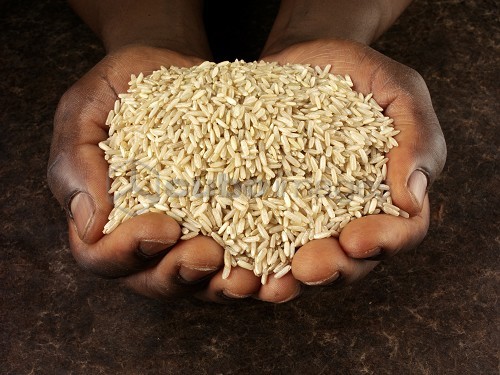Hunger between Production and Political Will

The causes of hunger around the world recently witnessed a boost of interest from different parties, though it is not enough to the sharpness of the crisis but anyway it worth noting and support. The UN agencies, particularly Food and Agriculture Organization (FAO), and special conferences on the sustained development have played a significant role during the last three years in setting a new agenda of activities to resist poverty and it’s impacts, hunger being foremost among them. Some countries have seen real progress in fighting hunger, using means based on justice and healing the social rift between the formal and the state responsibilities and the informal and effort of civil society.
We are convinced that it is possible to eradicate extreme poverty in Brazil by 2015. Thus assured Antónino Marques Porto, Brazil`s ambassador to FAO on the occasion of the UN FAO Conference, in Rome, from 15 through 22 June. He reported that his country is currently implementing the program Brazil without misery to continue the success achieved in the framework of the program “Zero Hunger,” which was launched by former Brazilian President Lula da Silva and helped to save between 30 and 40 million citizens from poverty.
This program included--among other things--cash transfers to the poorest families, enrolling their children in school and vaccinating them against diseases, according to the Brazilian ambassador. He added that the program “Zero Hunger” also provided rural credit and investment in small farms.
Ambassador Marques explained that the basic procedures for this program are to provide nutritious meals free for poor children in schools, that the state purchase from family farms and, in this way, the program supported the small local farmers and, at the same time, provided good nutrition for the children of low-income families.
In this regard, Luca Kinote of Oxfam International said that the success of the Brazilian “Zero Hunger” program is due to three elements: (1) the strong leadership of President Lula da Silva, (2) a broad partnership in developing and implementing the program, including ministries and civil society, as well as representatives of small farmers and rural workers, and (3) the shift toward the acquisition of most public-sector food purchases from family farms.
Within the same context, fighting poverty and hunger, the UN Non-governmental Liaison Service (NGLS) convened a phone consultation on 16 July 2013 with 16 regional networks and NGOs on the Arab level, including HIC-HLRN, to analyze and contribute to the four reports presented to the UN General Secretary about the post-2015 development agenda :
- High Level Panel Releases Recommendations for World’s Next Development Agenda.
- An Action Agenda for Sustainable Development.
- UNDG the Global Conversation Begins.
At the same June FAO conference, FAO Director Jose Graziano da Silva advised: If we continue to look at hunger in terms of food production alone, you will not get to solve the problem [..] He emphasized the need also to improve the entire system, including partnership with interested parties and other stakeholders. Da Silva has warned that the time has come, therefore, to take the next step, namely the development of the organization`s budget, adding that, over the past twenty years, the organization`s budget lost 27% its value. However, not all member states, especially major donor countries, agree to this meet this request.
Thirty-eight countries, including three Arab states, have succeeded in reducing the number of people suffering from malnutrition by half, within the framework of the first goal of the Millennium Development Goals. Of those, 18 have achieved more rigorous goals, namely the reduction of the absolute number of hungry people in the country. These countries are: Armenia, Azerbaijan, Cuba, Djibouti, Georgia, Ghana, Guyana, Kuwait, Kyrgyzstan, Nicaragua, Peru, Saint Vincent and the Grenadines, Samoa, São Tomé and Príncipe, Thailand, Turkmenistan, Venezuela, and Vietnam.
Twenty other countries have succeeded in reducing the prevalence of hunger (and not the absolute number of hungry people) among their people by half as well. These countries are: Algeria, Angola, Bangladesh, Benin, Brazil, Cambodia, Cameroon, Chile, Dominican Republic, Fiji, Honduras, Indonesia, Jordan, Malawi, Maldives, Niger, Nigeria, Panama, Togo and Uruguay.
Participants in the FAO conference praised the new President of Venezuela Nicolas Maduro, who summed up the path of his country to reduce the prevalence of hunger from 13.8 to 2.4% over the past decade. He stressed the key role played by late president Hugo Chavez. We ask the FAO to help us in creating a system to protect and stabilize food supplies permanently…, the Venezuelan president proposed.
FAO has recognized, especially, the food distribution policies implemented by Venezuela since the first government of the late President Hugo Chavez (who ruled the country in the period 1999–2013). The Organization has considered the Venezuelan network for the distribution of subsidized food the best in the world. Moreover, Venezuela managed to achieve an increase of 50% in daily calories per person, and reduce the rate of deaths due to malnutrition among children under the age of one year, from 117 per hundred thousand live births, in 1997, to 18 in every hundred thousand, in 2010.
These positive examples demonstrate that, among the essential ingredients in the fight against poverty and hunger, is political will.
|